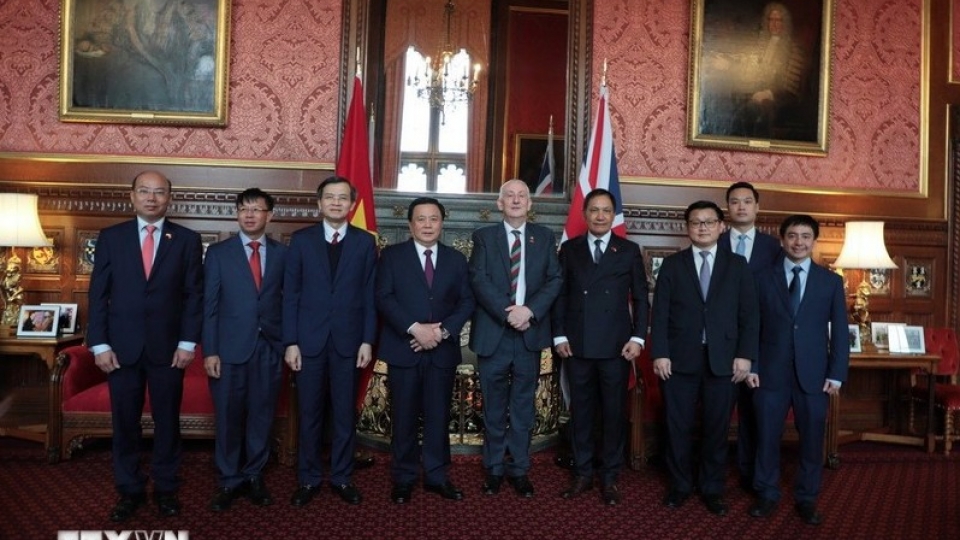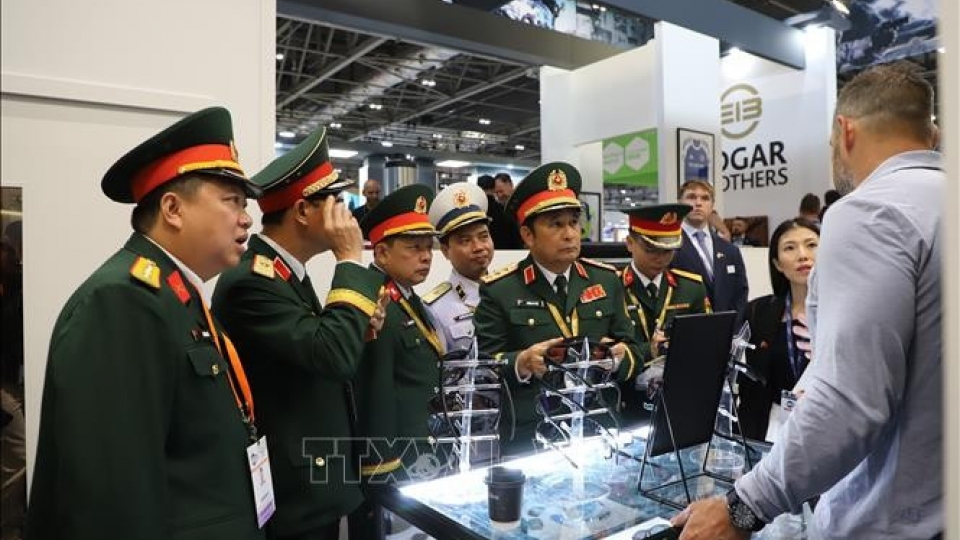UK sees Vietnam as key partner in Asia-Pacific
VOV.VN - The UK considers Vietnam an important partner in the Asia-Pacific and looks to strengthen comprehensive cooperation across diplomacy, security, trade, finance, education, energy transition, and sustainable development.

Parliamentary Under-Secretary of State in the Foreign, Commonwealth and Development Office of the UK Seema Malhotra made the statement at a working session with his Vietnamese Foreign Minister Le Thi Thu Hang on October 13 during the latter’s working visit to the UK.
Malhotra welcomed Hang and her delegation to London and highly valued the positive developments in bilateral relations in recent years, particularly the contributions of the two foreign ministries.
Hang thanked the UK Foreign, Commonwealth and Development Office and the British Embassy in Hanoi for their close coordination in both bilateral cooperation and multilateral forums, including the Association of Southeast Asian Nations (ASEAN) and the United Nations. She affirmed that Vietnam always attaches importance to and wishes to work with the UK to enhance the Strategic Partnership in a deeper and more effective manner, in line with the interests of both countries.
The two sides agreed to continue close coordination and maintain existing mechanisms between the two foreign ministries, such as the strategic dialogue at the deputy ministerial level and exchanges between relevant departments, while promoting their coordinating role to step up cooperation in a more extensive and effective way.
They also consented to ensure the effective organization of high-level visits and meetings, and to accelerate the implementation of signed documents and agreements, thereby deepening traditional areas of cooperation and expanding into new potential sectors.
Both sides also underlined the importance of economic, trade, and investment cooperation, taking advantage of the UK-Vietnam Free Trade Agreement (UKVFTA) and the Comprehensive and Progressive Agreement for Trans-Pacific Partnership (CPTPP). They concurred to bolster cooperation in science and technology, innovation, as well as culture, education, and people-to-people exchanges.




